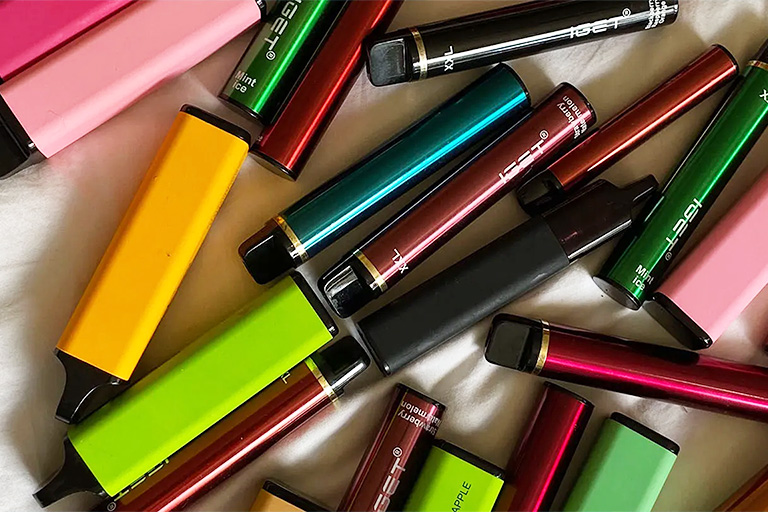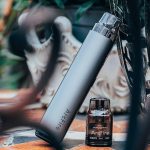Buying
Rechargeable vs Non-Rechargeable Disposable Vapes: Which One Is Right for You?
Disposable vapes have become the go-to option for vapers seeking convenience, flavour, and portability – especially in Australia, where the demand for nicotine alternatives has surged in recent years. But if you’ve spent any time browsing the shelves at VAPE WAREHOUSE or scrolling through your options online, you’ve probably run into a key decision: Should you go for a rechargeable or a non-rechargeable disposable vape?

In this guide, we’ll break down everything you need to know, from performance and cost to environmental impact and user experience. Whether you’re new to vaping or upgrading your setup, this is the comparison that will help you make an informed choice.
Related article:
- Disposable Vapes With and Without Screens: A Detailed Comparison
- Longest-Lasting Disposable Vapes: What to Know Before You Buy?
- Fruity Disposable Vape Flavours: Why Everyone’s Obsessed in 2025
What Are Disposable Vapes?
Before we dive into the comparison, let’s define the basics.
Disposable vapes are single-use electronic cigarettes pre-filled with e-liquid and pre-charged, designed for immediate use with no maintenance, refilling, or coil replacements. Once they run out of battery or e-liquid, you simply dispose of them.
Now, within the category of disposables, there are two major types:
- Non-Rechargeable Disposable Vapes
- Rechargeable Disposable Vapes
Let’s explore how they differ and what that means for you.
What Is a Non-Rechargeable Disposable Vape?
This is the classic disposable vape – simple, no-fuss, and compact.
Features:
- Pre-filled with e-liquid (usually 2ml to 10ml)
- Comes with a built-in battery (non-rechargeable)
- Typically lasts for 600 to 3500 puffs
- No buttons, charging ports, or settings
Pros:
- Super convenient: Open the pack and puff – that’s it.
- Small and light: Easy to carry, even in your pocket.
- No charging hassle: Ideal for festivals, travel, or short-term use.
Cons:
- Battery may die before e-liquid finishes, leading to wasted juice.
- Lower puff count: Not great for daily or heavy users.
- Not environmentally friendly due to one-time use.
What Is a Rechargeable Disposable Vape?
This newer generation of disposables has changed the game. Although still pre-filled and disposable, these devices allow you to recharge the battery, making it possible to vape the entire e-liquid content.
Features:
- Puff count often ranges from 5000 to 20,000 puffs
- Built-in Type-C or Micro-USB rechargeable battery
- Pre-filled with larger e-liquid capacity (10ml-25ml+)
- No need to refill or change coils
Pros:
- Extended use: Lasts for weeks with moderate use.
- More economical per puff: Better value over time.
- Reduces battery waste: Recharge instead of throw away.
- Consistent power output: Less chance of flavour fading or weak hits.
Cons:
- Slightly larger in size.
- Requires occasional charging.
- Still not fully sustainable due to being disposable.
Performance Comparison: Which One Vapes Better?
- Flavour Experience: Rechargeable vapes tend to deliver more consistent flavour over time. With non-rechargeables, once the battery starts to die, the flavour can weaken or taste burnt.
- Vapour Production: Devices like the HQD WAPOR PRO 20000 or ALIBARBAR INGOT 20000 (sold at VAPE WAREHOUSE) offer far more vapour, smoother hits, and better airflow than small, single-use vapes like the IGET 600.
- Puff Efficiency: A rechargeable vape can deliver true-to-label puff counts. Non-rechargeables often fall short because the battery dies before all the juice is used.
Winner: Rechargeable vapes, by a long shot.
Cost Comparison: Which Is More Budget-Friendly?
At first glance, a non-rechargeable vape might seem cheaper. But when you break down cost per puff, rechargeable devices are the smarter choice.
| Type | Price Range (AUD) | Puff Count | Cost per 1000 Puffs |
|---|---|---|---|
| Non-Rechargeable (e.g., IGET Bar 3500) | $25–$30 | 3,500 | ~$7.85 |
| Rechargeable (e.g., ALIBARBAR INGOT 20000) | $45–$70 | 20,000 | ~$2.88 |
You end up spending more and refilling more often with non-rechargeables.
Environmental Impact: Which Is Greener?
Let’s be honest – all disposable vapes come with an environmental footprint, but rechargeable models are slightly less harmful.
The Issue with Non-Rechargeables:
- Every vape = battery + plastic + circuit board wasted
- Shorter lifespan = more units discarded
- Difficult to recycle due to mixed materials
Rechargeables Are Slightly Better:
- Fewer devices thrown away per month
- Batteries used for longer periods
- Some brands moving toward recyclable casing
Still, neither option is ideal for the environment. A more eco-conscious step would be switching to refillable pod systems or supporting brands experimenting with biodegradable shells and battery return programs.
If you’re choosing disposable for convenience, go with rechargeables to reduce waste volume.
User Experience: What’s More Convenient?
| Factor | Non-Rechargeable Vapes | Rechargeable Vapes |
|---|---|---|
| Size & Portability | Compact & Light | Slightly larger |
| Ease of Use | Just puff & toss | Puff, charge, then toss |
| Maintenance | None | Requires occasional charge |
| Travel-Friendly | Yes | Yes (but bring charger) |
For ultra short-term use (a weekend festival, night out), non-rechargeables win for portability. But for regular daily use, rechargeables are far more convenient in the long run.
Top Recommendations
If you’re looking for rechargeable disposable vapes, check out these bestsellers in Australia:
| Device | Puff Count | E-Liquid Capacity | Battery Size | Estimated Duration |
|---|---|---|---|---|
| HQD WAPOR PRO 20000 | 20,000 | 18ml | 850mAh | 4-5 weeks |
| ALIBARBAR INGOT 20000 | 20,000 | 20ml | 1000mAh | 4-5 weeks |
| SEREIN MECH-PRO 10000 | 10,000 | 15ml | 650mAh | 2-3 weeks |
| BIMO Turbo 20000 | 20,000 | 20ml | 850mAh | 4-5 weeks |
| FISCO MIX BAR 12000 | 12,000 | 23ml | 750mAh | 3-4 weeks |
For non-rechargeables, only consider them if you’re new to vaping or need a backup option.
Related Questions
Can I recharge a non-rechargeable vape?
No. Trying to do so is unsafe and can damage the battery or cause leaks.
You also like: How to Recharge a Disposable Vape: A Step-by-Step Guide
Do rechargeable disposables last forever?
No. Once the e-liquid is used up or the coil burns out, it’s time to dispose of the device.
Can I travel with a rechargeable vape?
Yes, but follow airline rules: always store in hand luggage and disconnect any charging cables.
Is a rechargeable vape better for heavy users?
Absolutely. With higher puff counts and rechargeable batteries, they’re made for regular vapers.
Which One Should You Choose?
Rechargeable disposable vapes last longer, offer better flavour consistency, and reduce battery waste compared to non-rechargeable options. They are ideal for daily use, while non-rechargeables suit short-term or light vapers.
If you’re looking for the best combination of performance, value, and longevity, rechargeable disposable vapes are the clear winner.
- For short-term, light use: Non-rechargeables are easy and portable.
- For everyday use and better value: Rechargeables deliver more puffs, stronger flavour, and less waste.
At VAPE WAREHOUSE Australia, you’ll find a wide range of both options – all 100% authentic, shipped fast, and backed by excellent customer support.





